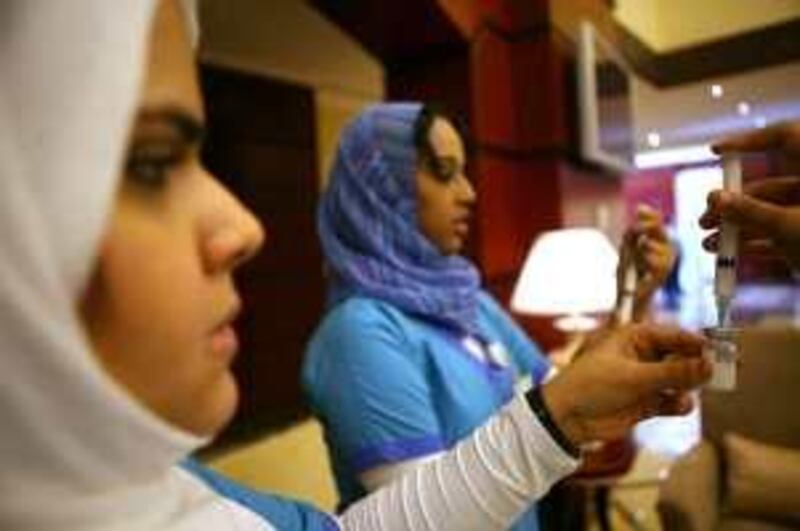ABU DHABI // Haj pilgrims heading to Saudi Arabia later this month will have to show proof of H1N1 vaccination before being allowed out of the UAE, say officials at the Ministry of Health. Pilgrims need to be armed with the yellow, passport-sized International Certificate of Vaccination, which will be provided to each pilgrim who receives the newly arrived Pandemrix H1N1 vaccine. Despite initial reports by the ministry that the vaccine will not be made compulsory to anyone, the decision was amended for those readying to attend the annual Haj pilgrimage by the UAE's medical authorities. Although Saudi Arabia will not bar anyone considered high-risk for swine flu from performing the Haj pilgrimage this year, and did not make it mandatory for pilgrims to be vaccinated against swine flu, the UAE has chosen to take its own precautions. The ministry will designate four centres in Dubai and another 30 across the Northern Emirates that Haj pilgrims can head to in order to complete the pre-Haj medical check-ups and receive the vaccine. In Abu Dhabi, Al Ain and Al Gharbia, pilgrims can head to any disease prevention and screening centre in order to have their vaccine administered. In total, 6,228 pilgrims will head to Haj this year from the UAE, of which 1,000 are Emirati nationals. The Haj pilgrimage, required of all able-bodied Muslims at least once in their lifetime, has become a concern for world health officials because of the density of pilgrims. To that end, free antiviral medication is stockpiled in all clinics in the Holy sites. Other preparations in Saudi Arabia include thermal screening equipment at entry points to detect passengers with fevers, rapid reporting of illnesses to the emergency operations centre, and special hospitals for quarantining those who catch the disease. hkhalaf@thenational.ae
Haj pilgrims will need swine flu vaccination
Haj pilgrims heading to Saudi Arabia this month will have to show proof of H1N1 vaccination before being allowed out of the UAE.

Editor's picks
More from the national




